The Man from Berlin
Read The Man from Berlin Online
Authors: Luke McCallin

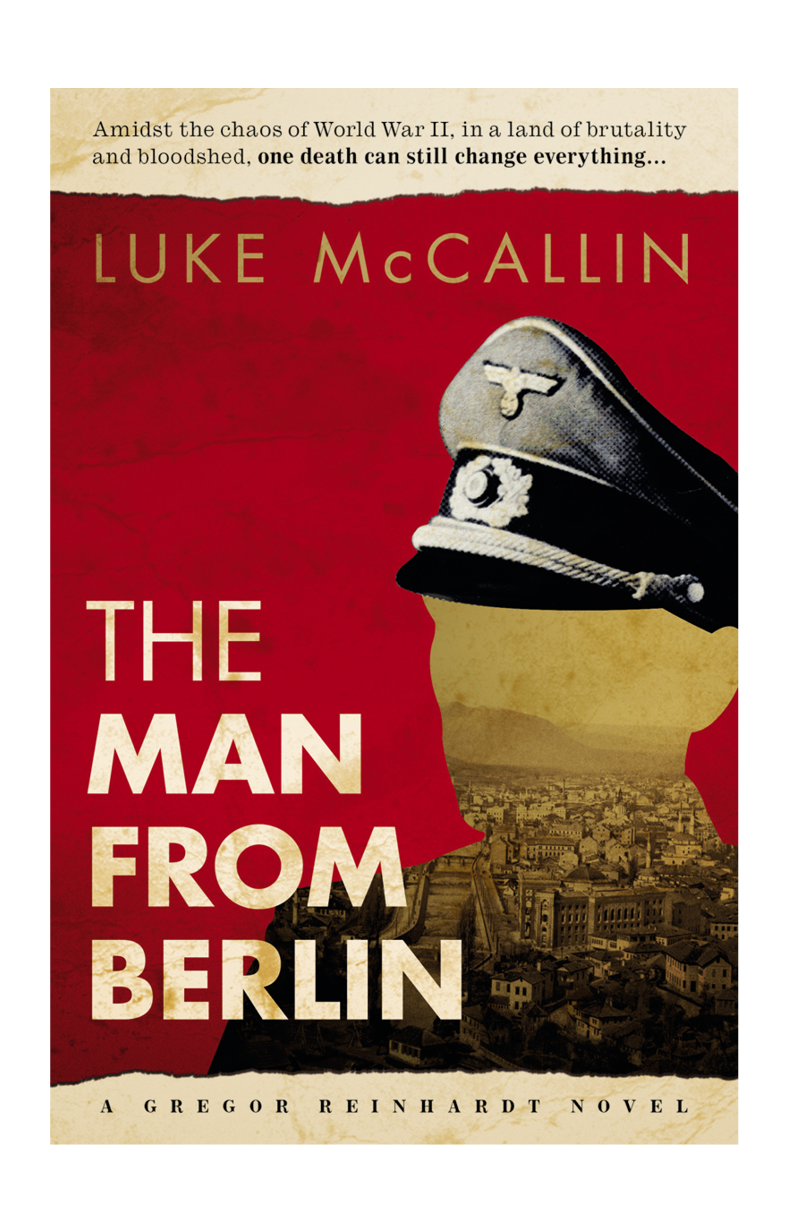

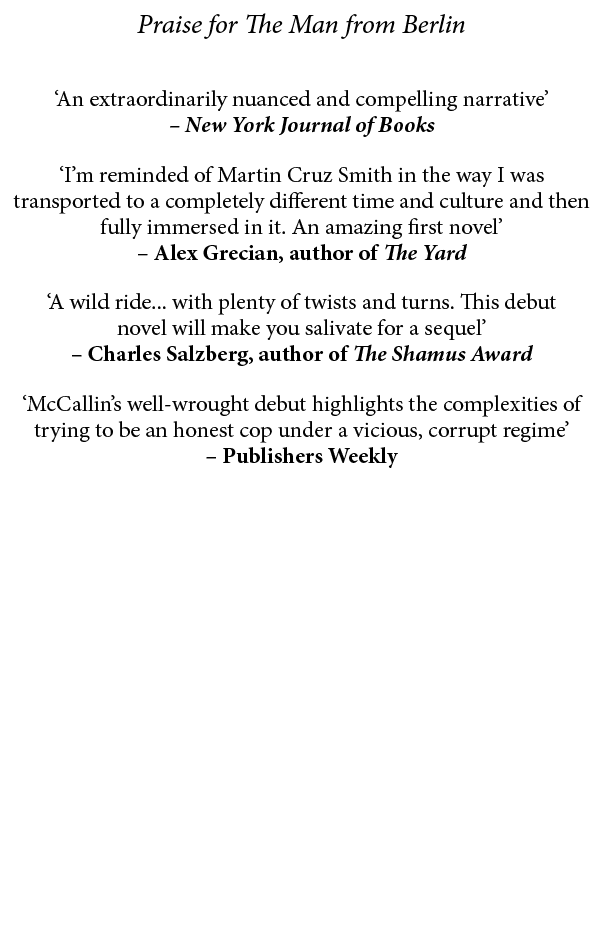
LUKE McCALLIN

Luke McCallin was born in Oxford, grew up in Africa, went to school around the world and has worked with the UN as a humanitarian relief worker and peacekeeper. His experiences have driven his writing, in which he explores what happens to normal people put under abnormal pressures. He lives with his wife and two children in an old farmhouse in France. He has a MA in political science, speaks French, Spanish, and a little Russian. His next book
The Pale House
will be published by No Exit Press next year.
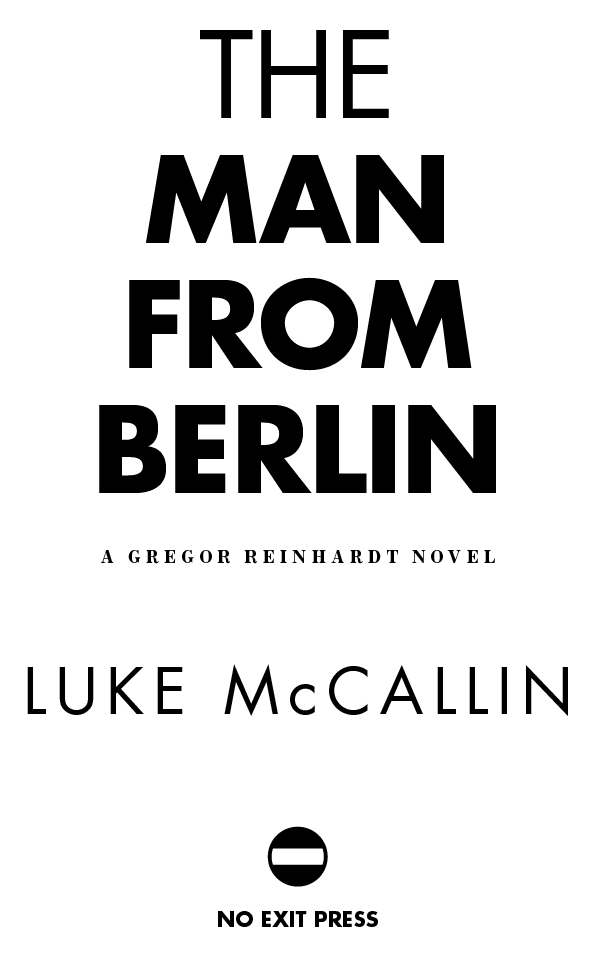

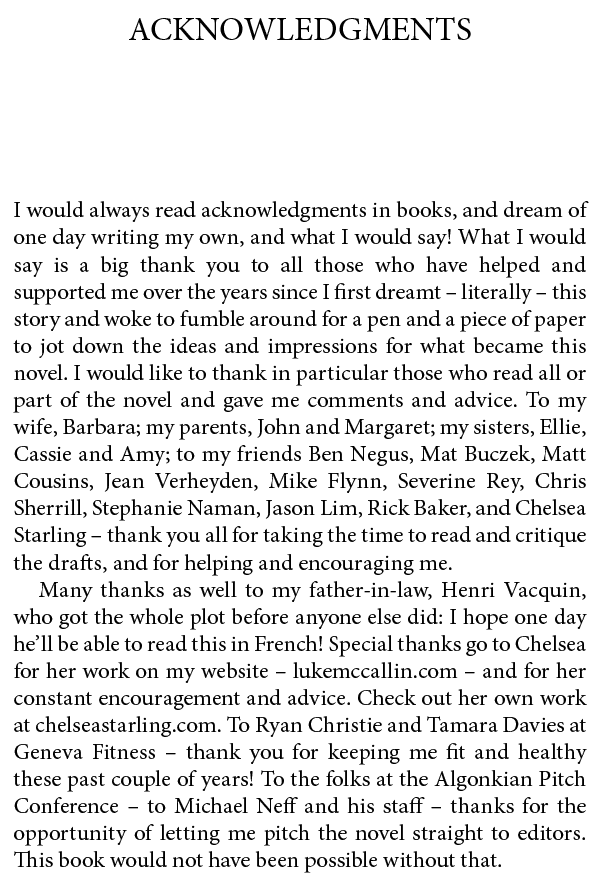
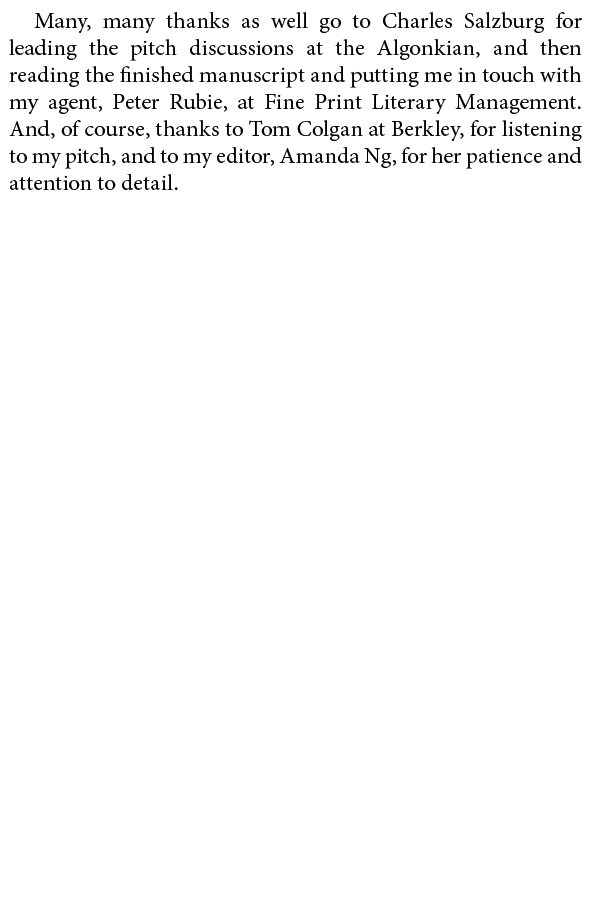
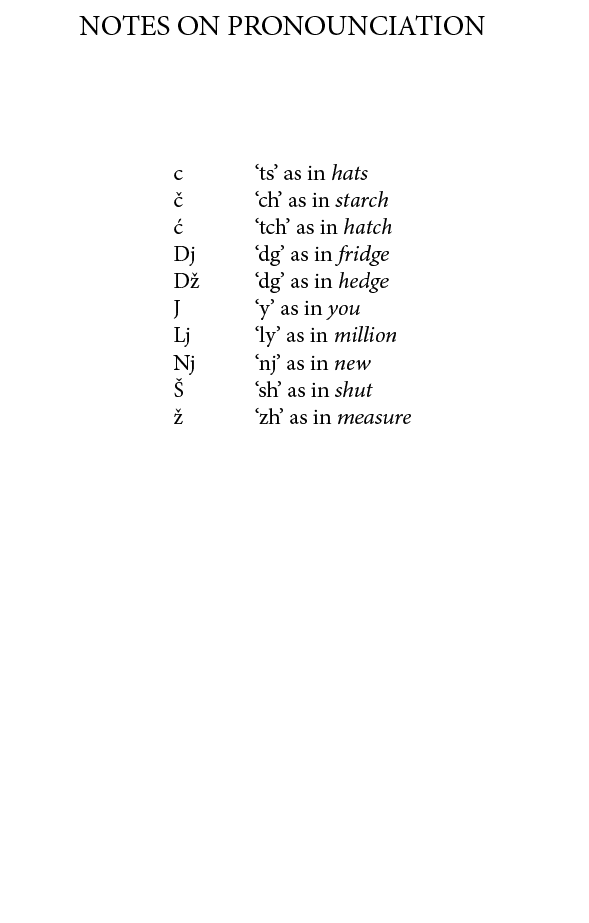

Part One
The City
1
SARAJEVO, EARLY MAY 1943
MONDAY
R
einhardt shuddered awake, again, clawing himself up from that dream, that nightmare of a winter field, the indolent drift of smoke and mist along the hummocked ground, the staccato line of the condemned and the children's screams. He rolled his feet to the floor, sitting slumped on the side of the bed with his head in his hands, and listened to the calls to prayer sounding in ones and twos from the minarets as the sun rose across the MiljaÄka valley. Eyes glazed with fatigue, an ache in his head and an acid churn in his belly, he watched without seeing the crawl of light across his room, his mind still floundering to escape the clutches of his dream. He jerked as he smelled smoke, an acrid sting of memory, and blinked it back. Only a memory, but another sign of the inside leaking out more and more into his waking world. He wondered if he was going
mad.
With trembling hands he lit a cigarette. His head swivelled to the side as he drew deeply, then tilted back as he exhaled through puffed cheeks, his eyes closed, the hangover beginning to bite. The smoke swelled up above him, rising, dissipating. Reinhardt watched it for a moment then let his head sag over his fingers, curled like a cage around the cigarette. Gingerly, he ran a fingertip across his temple, feeling the dull bruise beneath the skin where, more and more, the weight of his pistol was the last thing he felt at night.
Someone knocked at the door, and he froze, startled out of the fog of his thoughts. The knocking came again, and his name, muffled through the door. He put a hand on the bedside table and pushed himself quietly to his feet, but his arm felt numb and heavy from where he had slept on it, and it slipped, slid, and bumped the pistol, which clattered and clinked against the bottles and glasses.
Reinhardt stared guiltily across the room in the sudden silence. The knocking came again, louder. He put out his cigarette, gritting the stub into a whisper of ash; put a hand out to the wall to steady himself as his left knee gave its usual twitch; and began to shuffle down the side of the bed. He rested both hands on either side of the door frame, breathed deeply, and rolled his head on his neck, feeling the ache skitter around inside his skull like a steel ball in a bowl, and ran a finger across the bruise at his temple. Another deep breath, and he threw the latch back on the door and flung it open.
A soldier stood in the hallway outside, a fist raised to hammer the door again. Steely eyes regarded him from under the rim of a field cap, a sergeant's insignia on his broad shoulders. For a moment there was silence, and Reinhardt realised he must make quite a sight, his hair tangled, shirt twisted out of his trousers, and his feet in socks.
âCaptain Reinhardt?'
Reinhardt looked at him through the spreading ache behind his eyes, half recognising him. âI think you bloody well know who I
am.'
The man put his heels together and saluted. âSergeant Claussen, sir. I have orders for you to report to Major Freilinger immediately.' The man was built like a boulder, short and squat with his uniform stretched taut over his chest and belly.
Reinhardt stared at the sergeant. âTo Major Freilinger?' he croaked. He coughed, swallowed, and tried again. âFreilinger? What does he want?'
âThere has been a murder, sir,' said Claussen.
âMurder?' Reinhardt put his hand behind his neck and rubbed it, turning his head from side to side. He thought he saw Claussen's eyes stray to the mark he was sure was on his temple, and he straightened up. âWhat's that got to do with us? This city still has a police force, doesn't
it?'
âMajor Freilinger instructed me to tell you that one of the victims is a fellow military intelligence Abwehr officer. Lieutenant Hendel.'
âStefan Hendel? Freilinger said he was Abwehr?' Claussen nodded. âVery well. Give me ten minutes.'
âYes, sir. Ten minutes.' Claussen was an experienced NCO. The four green stripes of a master sergeant on his arm were proof of that, and a good NCO knew how to frame a statement to an officer so it sounded like an order. Reinhardt flushed again at the picture he must make, picked up his towel and toiletry bag, and stalked out of his room down the corridor to the bathroom.
He bent over one of the sinks as he felt the churning in his stomach come heaving up. He retched, his head beginning to pound as he doubled over but, as so often, nothing came up, only a sickly rasp of bile, like the viscous residue of his life and work. His stomach calmed, eventually, and he shivered as he stayed bent over the sink, the hammering in his head turning into a dull ache that squatted in the top of his skull.
He rested his head in his hands, eyes pressed into the heels of his palms. Another night and he had hardly slept, and what sleep he managed gave him no rest. Another night spent in the cells under the prison, facing prisoners of war across bare rooms under caustic lights. Another night spent piecing together the puzzles these men represented, pulling together information and intelligence from a dozen other interrogations from the nights and days before them, here and elsewhere. Norwegians, Frenchmen, Englishmen, Australians, Arabs⦠now Yugoslavs. Partisans. They had all come and gone in front of him since this war started.
The pipes shuddered and coughed a spray of water into the cracked porcelain of the basin. He swallowed a couple of aspirin, drank as much water as he could, then carefully shaved, looking through his reflection. He rinsed off and only then allowed himself to look in the mirror. Not quite as bad as he felt, he saw. Dark blue eyes like pits, cheeks gaunt above the tight line of his mouth, the close-cut cap of his brown hair greying at his temples. An average face. One that would go unnoticed in a group of three men, as his old police instructor used to joke.
He wet his tousled hair, combed it, splashed cologne on his face and water in his armpits, and he was done. He looked in the mirror a last time, wiping away the steam to stare at himself.
âAs good as it gets,' he muttered, pulling out the light and walking back to his room. Reinhardt shut the door in Claussen's face, let his trousers puddle around his feet, then peeled off his shirt and let his underpants and socks join the heap on the floor. Outside, the call of the muezzins faded away across the valley that held the town of Sarajevo cradled in its slopes. As if needing to fill the silence, the bells of St. Anthony's, up behind the barracks, began to toll.
Outside came the squeal of the trams at VijeÄnica as they went around the corner at the city hall. He twisted his shoulders into his braces, sat to pull on his boots, pausing a moment to stare at the picture of his dead wife in its silver frame on the bedside table, tracing a fall of hair with a fingernail along the glass.
Reinhardt placed the picture gently into a drawer and wound his watch. It was just a cheap Phenix, but winding it always made him think of the watch he had left behind in Berlin with Meissner, for safekeeping. A pocket watch, heavy, old fashioned, a British-made Williamson hunter with an inscription on its silver casing, and the memory of his finding it as vivid as ever.
He shrugged into his jacket, medals and metal clinking dully, closing each button with a firm movement as he stared at the window, thinking of nothing except the day to come and how to get through it. A step at a time, he knew. One after the other. Head down, back bent, eyes no more than two steps ahead, step after step until the day was done. He cinched a wide leather belt around his waist and took his cap from a hook on the wall and his pistol from the tabletop, sliding the gun into the holster with a dull rasp of metal on leather. Looking in the small mirror behind the door he adjusted the fit of his cap, then stuffed a pack of Atikahs and some matches into the pocket of his jacket and opened the front door.
âAll right, let's go,' he said, as he locked his door. Claussen straightened, his eyes flicking to the Iron Cross pinned to the left breast of Reinhardt's tunic and back to Reinhardt's face. He saw the change come across Claussen's eyes as a decorated captain in the Abwehr came out of the room a half-drunk, half-dressed man had gone into.
Claussen led the way downstairs and into the cobbled length of the central courtyard of the Bistrik barracks, built by the Austrians at the start of their occupation of Bosnia at the end of the nineteenth century. They walked to a slope-nosed
kübelwagen
where a soldier was smoking a cigarette. He stubbed it out and saluted Reinhardt, his eyes looking up and over the captain's left shoulder. âCorporal Hueber reporting, Captain,' he snapped. He was tall and raw-boned, cheeks flecked with acne.
âHueber is our Serbo-Croat specialist,' said Claussen as he opened the
kübelwagen
's door for Reinhardt. âMajor Freilinger said to bring a translator, just in case our Croat friends decide to forget their ÂGerman.'
âAt ease, Corporal,' said Reinhardt. âYou speak the language?' Reinhardt had picked up something of the language in his two tours in Yugoslavia. More than enough to follow the gist of conversations, order drinks, and scan the headlines of what passed for newspapers. He shook a cigarette from his pack and put it in his mouth.
âYes, sir. My mother's family was from Zagreb.'
âCarry on, then,' he said, settling into the car. The other two climbed in, and Claussen engaged first with a grind and steered them past the sentries in their striped pillboxes and into the street. Reinhardt wedged his shoulders against the rim of the door and put his arm along the central bar behind the front seats, his hand resting on the empty weapons racks. Remembering the cigarette in his mouth, he lit it, drew deeply, exhaled, then after a moment's consideration offered cigarettes to Claussen and Hueber.
Claussen drove over the Latin Bridge to Kvaternik Street, the old Austrian Appelquai, then followed the trams down to VijeÄnica. They travelled past the jumbled Oriental warren of BentbaÅ¡a with its uneven cobbled streets and Ottoman houses with white walls and red roofs, and back through the city, past BaÅ¡ÄarÅ¡ija with its cafés dotted around its cobbled sweep. The air was cool this early in the morning, underlaid with the smell of coal and wood smoke, but the clear skies promised another scorcher of a day. Up at the top of Vratnik hill, beyond the jumble of roofs and minarets, the white walls of the old Ottoman fortress stared blankly down on the city.
âWhat more did Freilinger tell you?' asked Reinhardt as Claussen sped up again down King Aleksander Street. The city's latest masters, the Independent State of Croatia â the NDH â had renamed it Ante PaveliÄ Street after their version of the Führer, but everyone, even those in charge, still called it Aleksander. At a crossroads, UstaÅ¡e policemen â ÂCroatian fascists in black uniforms with rifles strapped across their backs â were pulling down Communist Party posters that must have been put up overnight. The walls on both sides of the road were covered in scraps of white paper where dozens more had been pulled down. More UstaÅ¡e stood guard over a group of men kneeling on the pavement with their hands on their heads. Two bodies lay in the street.
Claussen squinted around the cigarette smoke spiralling up into his eyes and slowed to bump the car over a bad patch of road. âThe major only said the murders had occurred at an address in Ilidža.'
âIlidža?' said Reinhardt. âThat's a bugger of a drive. And I need something to eat.' He scanned the road ahead and motioned for Claussen to pull over while he jumped out and bought
kifla
off a trader in baggy black trousers and a red waistcoat pushing a handcart. The man kept his head down, his eyes sliding over him and past, as if around an absence, but Reinhardt was used to that
now.
The bread was warm, soft, and salty-sweet as he chewed and watched the city go by. Down past the gutted ruin of the Sephardic synagogue, past the yellow arches of the city market, past the Imperial façades of Marijin Dvor and the old State House where the general staff had its offices, past the tobacco factory, the white exterior of the National Museum, and the long stretch of wall that hid the Kosevo Polje barracks, and then they were leaving the main part of Sarajevo behind and driving almost due west, the MiljaÄka valley opening out to north and south.
There was space here you never seemed to find in the city's hunched streets. Orchards and fields running away from the road in long rectangles, the rolling countryside speckled with the four-sided roofs of traditional houses. The old Austrian road was dotted with horse carts, donkey carts, sheep and goats, tradesmen, farmers, women in twos and threes wearing long veils who turned away as the car went past. At the other end was the spa resort of Ilidža, nestled at the foot of the forested swell of Mount Igman, a sort of smaller, cleaner, more spacious counterweight to the city that lay behind them all squeezed in and jumbled up the slopes of the mountains that pinched off the eastern end of the valley.
The drive was a fairly long one, and despite the best efforts of the engineers, the road was not standing up well to the constant pounding of the military traffic along it. Claussen was forever slowing, braking, and swerving around ruts and potholes, but the drive gave Reinhardt time to think, time to recover from his binge, and time to start feeling ashamed of himself. He found his fingers again brushing over the spot on his head to which he had put the pistol, his mind opening again to the emptiness he struggled each night to encompass. With an effort, he tamped down on it, pushed it away, but it was becoming harder not to let the depression and despair he felt at night overwhelm him during the day. Again, he caught Claussen looking at him out of the corner of his eye, and he clenched his right fist tight and held it on his
leg.
He tried to think instead about the victim, Hendel. In Sarajevo for three months or so. Prior to that with the Abwehr in Belgrade. He did internal army security and before that was in technical work â radios, cameras and such. Spoke the language fairly well, Reinhardt recalled. Liked the ladies and got out on the town whenever he was off duty. That was pretty much all he knew about him. He could not talk to either of the men with him in the car about anything Hendel might have been working on, so he put his head back and closed his eyes.